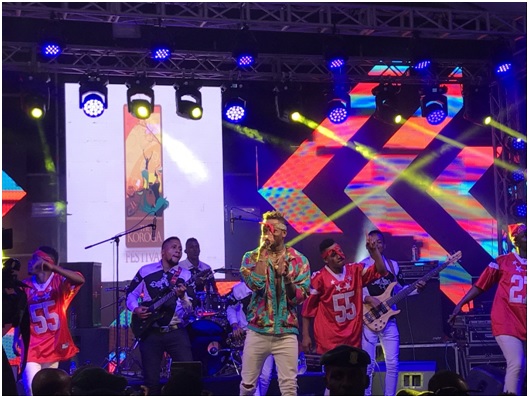
By Jade Makory**
There is a noticeable boom in Kenya’s entertainment scene. People want to meet up with friends and family, eat and drink while listening to good music or enjoying art or cultural performances. This has led to fierce competition among event planners, who feel the need to set themselves apart from other event planners. To do so, they would need to have distinctive and original features to set their events apart. These unique features may manifest themselves as intellectual creations that would require protection and management as intellectual property (IP). These features may be: branding elements such as logos, slogans and names falling under trademark law in accordance with the Trademark Act; ornamental or aesthetic features of their products falling under industrial design law in accordance with the Industrial Property Act; and original works falling under copyright law in accordance with the Copyright Act.
Event planners may seek to benefit from the distinctive and original features surrounding their events in several ways. First, they are able to attract a loyal following of their own. Having a loyal following is key when it comes to guaranteeing the success of future events. It also attracts more people to future events as social media has made event experiences something people do not want to miss out on. This is what is meant by people when they talk of ‘FOMO’ (fear of missing out). Second, when beverage and food companies want to partner with events, it is more appealing to these companies if the event has distinctive and original features they can use to their own advantage. It is the association with the distinctive and original event that these companies want to benefit from. Third, aspects of consumer satisfaction come into play. Having distinctive and original features enables event planners to build a brand around their event and thus seek to deliver quality events. This is of benefit to both the event planner and those who attend the event. Furthermore, when coming up with hashtags on social media and having events trend, distinctive and original features come into play as they give people something they can use to identify with in a large scale.
Imagine an event with no distinctive and original feature (this includes the name of the event, the logo of the event and the artwork that is uniquely displayed at that event and no other event): how would people begin to create hashtags and other marketing content that will publicise the event? For an example: An event is organised where people are invited to enjoy good music from ‘Band X’. The event is a success and people have a lot of fun. ‘Band X’ is trending on Twitter, Instagram and Facebook. So many people have taken snaps of the event on Snapchat as well. After the event, people are so happy about the event and they are very hopeful that they will get to attend a similar event in the future. But because the event had no distinctive features, ‘person A’ who attended the event decides to come up with a similar event and give it a distinctive name which captures aspects of the just concluded event which he wants to protect so that other event planners do not get to use it. Who is going to emerge the winner in such a scenario?
In light of the above, it is clear that event planners must protect and leverage their IP in order for their events and associated business undertakings to remain relevant and competitive. A solid intellectual property strategy is the key to a successful events planning business. Why should an event planner have to work so hard and not be able to benefit entirely from having the event attributed back to his or her business?

To give a practical example of how the IP system works to protect the distinctive and features of an event, consider the case of Blankets and Wine Limited – the company behind the highly successful ‘Blankets and Wine’ events which started in Nairobi before expanding to other cities before crossing over to neighbouring countries. A cursory search on CIPIT’s free trademark database shows that Blankets is a registered trade mark (see image above) at Kenya Industrial Property Institute which means that the company can take legal action against anyone who uses its mark without authorisation or paying a license fee to it as the proprietor of the mark.

In addition to trade mark protection, it is possible for event planning companies to obtain copyright protection for their events. For example, Blankets and Wine Limited has registered their event as a literary work at Kenya Copyright Board (see image above). In this connection it is important to note that there are other copyrightable aspects of an event that may fall under various categories including musical works, artistic works, audio-visual works, sound recordings and broadcasts. In the event of use without authorisation, this may attract fines or even prosecution.
**Jade Makory is a final year Bachelor of Laws student at Strathmore University.